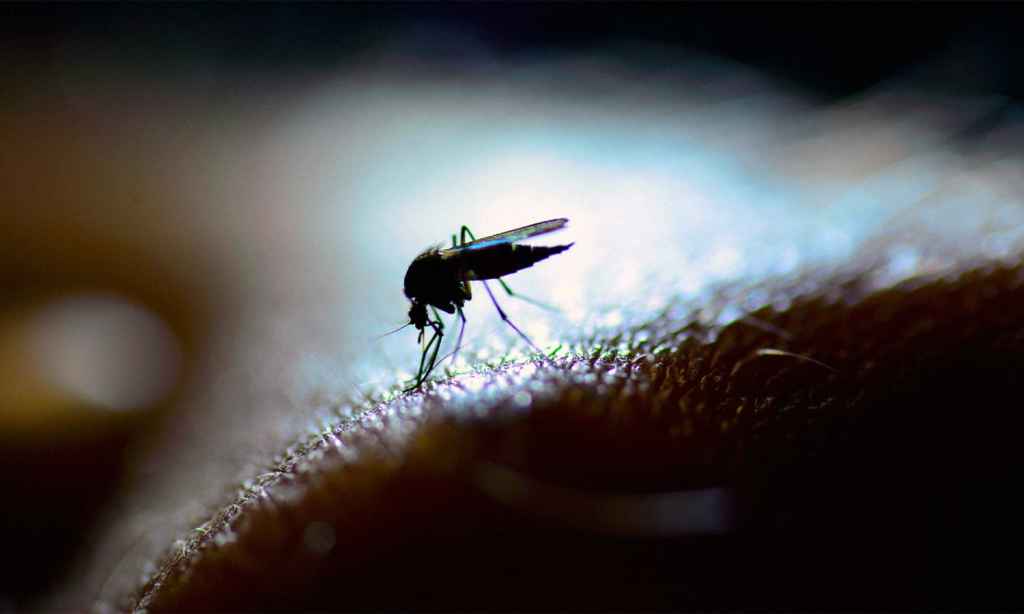There is nothing (nothing) more unpleasant in this world than being woken up in the middle of the night by the whine of a mosquito. The world’s most hated pest has the power to turn even the most composed individual into a rabid hunter, determined to seek out and destroy the source of this awful, sleep-denying sound.
Aside from their terrible sound, mosquito bites can cause itchiness for days and, more significantly, they are far and away the biggest the biggest killer of humans in the animal kingdom. The female Anopheles mosquito killed between 150 and 300 million people in the 20th century alone through the transmission of the malaria parasite. Other species carry the Zika virus, dengue, West Nile, Ross River, and yellow fever. Mosquitoes are one of the most terrible aspects of living on planet Earth and proof that, if there is a god, they are either nefarious or have a dark sense of humour.
Fun fact, The Guardian once ran an investigation into why mosquitoes exist and the only answer they could come up with was to annoy — and kill — people. While wiping them out entirely is probably not a good move, since only a few of the 3,570 mosquito species bite humans and some are crucial food sources for other animals, there is a good argument for eliminating the Aedes aegypti mosquito, which carries multiple diseases and appears quite happy to live alongside humans in urban environments. And, thankfully, scientists are, trying to do this as we speak.
Until that time, however, we’re just going to have to live with the little bastards, and, in an effort to demonstrate their need for extermination, new reports suggest mosquito populations are about to explode across Australia.
The wet weather caused by the ongoing La Niña weather system has brought us above average rainfall for the past few months and the Bureau of Meteorology is predicting that this pattern will continue for most of the summer. This means wet, warm conditions across much of Australia i.e. the perfect weather for mosquitoes.
“It’s a perfect opportunity for a population explosion,” David Brock of the Australia Museum told the ABC recently.
So, as there’s apparently no end to joys 2021 will bring us, how do we prepare for this upcoming mosquitopocalypse?
How to Deal With Mosquitoes
Mosquitos breed in standing water. The female will lay eggs in any small patch of still water where the larvae will grow for between seven to 10 days before emerging as mosquitoes. Each female can lay between 50 and 500 eggs and will lay about 10 clutches in their one-month life span. That’s potentially 5,000 mosquitoes per female.
In order to try and stop mosquitoes breeding in the first place, you’ll need to try and remove as many sources of standing water as possible. This means tipping out empty containers or plant pots outside, ensuring gutters have free-flowing water, and covering large areas of water like rainwater or septic tanks. You can also keep ponds stocked with fish that like to eat mosquito larvae.
Mosquitoes around the yard can be dealt with by installing an oscillating fan that will blow them away from outdoor seating areas. Mosquito nets and screens are also worth installing to shield areas from the insects and treating standing water that’s difficult to access with mosquito bits or dunks will also eliminate larvae from the water (while not harming anything else).
Unfortunately, there is little evidence that growing citronella, lavender, or any other aromatic plant will have any effect on mosquitoes. The best way to stop them is to prevent them breeding in the first place and that means doing the above.
Mosquito Repellent
As a last, but quite effective, resort, mosquito repellents are your final line of defense against the bugs.
Mosquito repellents come in a wide range of applications including incense sticks, aerosols, creams, and even wearable devices.
Choice.com recommends getting a repellent with DEET or picaridin as the active ingredient (or both) but notes that DEET is a much harsher chemical and that the smell is often not great.
Natural alternatives that don’t use either of the above can have some effect at keeping mosquitoes at bay but they won’t be as effective as the chemical ones.
Although wristbands that advertise mosquito repellent abilities are available, the consumer guidance website found no evidence that these are effective.
There are also electronic devices like the Thermacell that claim to repel mosquitos where placed and, while these are considered effective, the chemicals used to ward off the bugs have been known to cause cancer and birth defects. They’re also toxic to birds, fish, bees, and cats. Might be best to steer clear of that.
Aside from a repellent, covering up any exposed skin is pretty much the only thing you can do to stop mosquitoes biting. Either that or accept that they’re the true rulers of the outdoor world and that, sometimes, retreat is the best option.
Read more stories from The Latch and subscribe to our email newsletter.







